
Yet Thien sleeps fitfully. Every morning he reaches for his iPhone to scan news from faraway capitals that could put his livelihood and that of his 80 workers in jeopardy. That’s because Vietnam again finds its destiny shaped by the clash of great powers. The country, the bloodiest battlefield of the Cold War five decades ago, is at the nexus of the latest superpower confrontation—the economic rivalry between the U.S. and China.
To keep its export-powered growth story going, Vietnam needs unfettered access to the market of its former enemy, America, whose shoppers snap up Nike shoes made in the country’s south and tap away on Samsung smartphones assembled in giant plants just north of Hanoi. Equally crucial are imports—from yarn for making shirts and pants to chemicals and machines for assembly lines—from its fellow communist state and ostensible friend, China.
Early on in the U.S.-China trade war, Vietnam was shaping up as one of the world’s few winners. Investments flowed in and products shipped out of its busy ports in ever-increasing numbers. This bounty had unforeseen consequences, though: A growing trade surplus with the U.S. exposed Vietnam to the sort of tariffs the Trump administration had imposed on China. The duplicitous flow of Chinese products such as aluminum and plywood, rerouted south across the border and falsely labeled “Made in Vietnam” to avoid U.S. duties, is further straining Hanoi’s relations with Washington.
This story is from the February - March 2020 edition of Bloomberg Markets.
Start your 7-day Magzter GOLD free trial to access thousands of curated premium stories, and 9,000+ magazines and newspapers.
Already a subscriber ? Sign In
This story is from the February - March 2020 edition of Bloomberg Markets.
Start your 7-day Magzter GOLD free trial to access thousands of curated premium stories, and 9,000+ magazines and newspapers.
Already a subscriber? Sign In
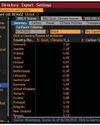
See Which Countries Are Falling Behind On Climate Change
Under the Paris Agreement, 190 countries and the European Union pledged to take steps to hold the global temperature rise to less than 2C (3.6F) from preindustrial levels—and preferably 1.5C.
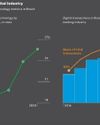
Billionaires Vie for the Future of Brazilian Finance
An escalating battle between two billionaires is upending the financial community in São Paulo, Latin America’s wealthiest city.
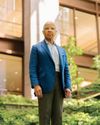
Ford Foundation's Darren Walker: ‘We Have to Get Uncomfortable'
DARREN WALKER, 62, disrupted his Wall Street life more than 25 years ago when he left what is now UBS Group AG to volunteer at a school and eventually pursue a career in community development and philanthropy. Since 2013 he’s been at the pinnacle of the philanthropic world as president of the Ford Foundation, created by the family of automaker Henry Ford during the Great Depression to advance human welfare.

Fueling the Ener Transition
I MAY BE BIASED, but some of the most important research and data on the Bloomberg terminal lies in one of its lesser-known functions: {BNEF }
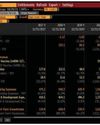
Dig Into Analysts' Estimates for Disruptive Companies
THE PANDEMIC ERA generated a whole wave of disruptive companies as it accelerated the introduction of new products and services in areas including artificial intelligence, digitization, electronic payments, online meeting platforms, and virtual currencies.
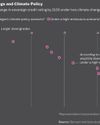
Climate Risks Come for Sovereign Credit
FOR YEARS climate scientists have warned about the ferocious wildfires and hurricanes that are now overwhelming many communities. Today alarms are ringing about a related financial danger: risks lurking within government bonds, the biggest part of the global debt market.

Responsible-Investing Pioneer Lydenberg Says ESG Needs An Upgrade
STEVE LYDENBERG’S passion for social change was inspired by anti-Vietnam War demonstrations, consumer boycotts, and the movement to divest from apartheid South Africa. But he didn’t take to the streets. Instead, Lydenberg turned to the world of finance to help catalyze societal change.

Engine No. 1's Grancio: ‘People Will Appreciate an Economic Argument'
ENGINE NO. 1 sent shock waves across corporate America in May when the fledgling investment firm won a boardroom battle with Exxon Mobil Corp., securing three seats on the oil and gas giant’s board after purchasing only about $40 million of its stock.
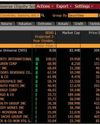
Find Out Which Companies May Ramp Up Payouts After Covid
AS THE PANDEMIC DISRUPTED business last year, many companies cut or suspended dividends. Which will boost their payouts when economies pick up again?
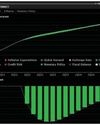
Get Into the Minds of Central Bankers as They Navigate Shocks
HAVE YOU EVER WONDERED how central bankers forecast the impact of shocks on the economy?